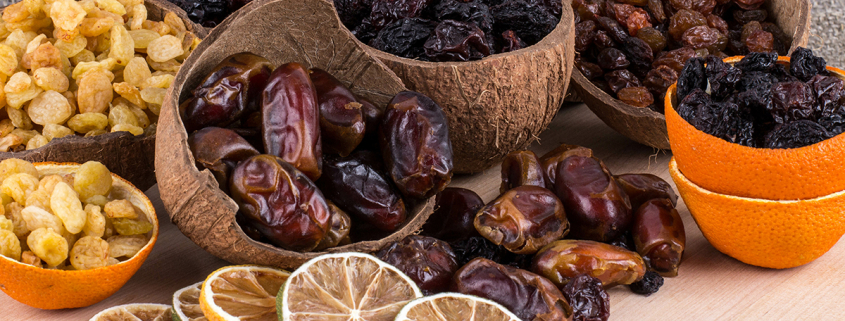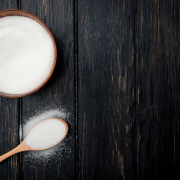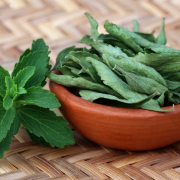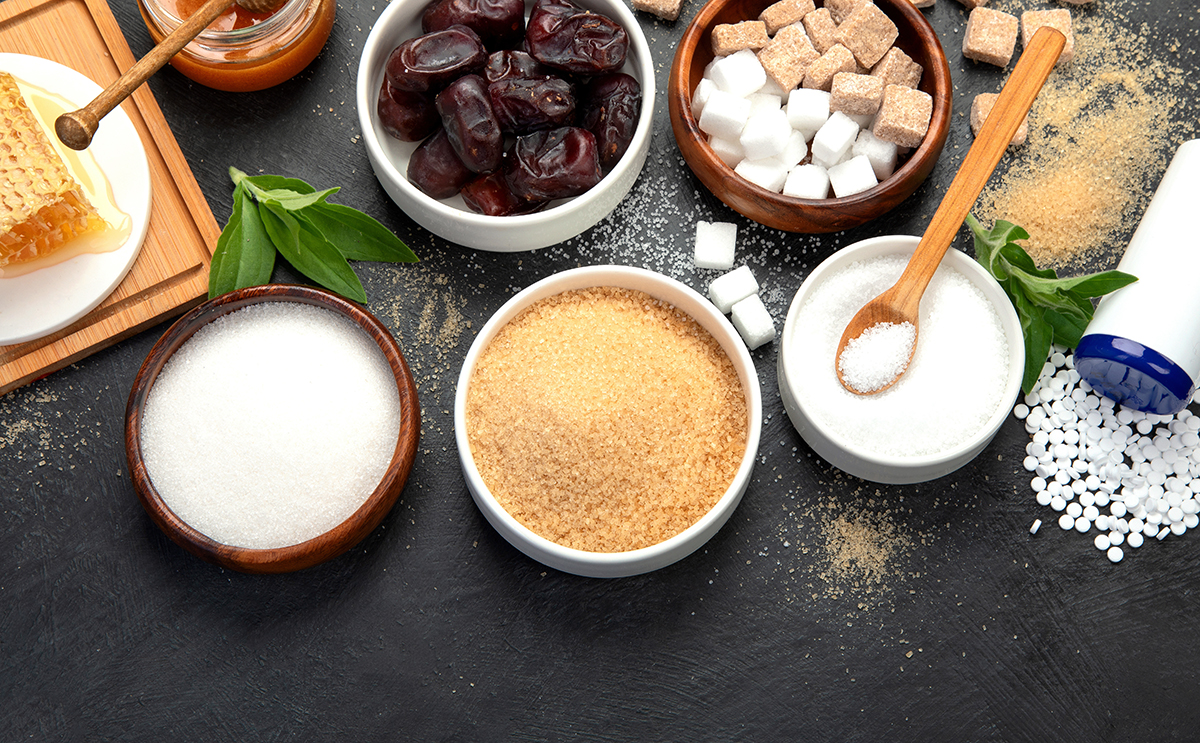What is Allulose?
Alternative sweeteners have been around for decades. But they often come with drawbacks including bitter aftertaste, poor cooking qualities, or being highly processed. Allulose has recently gained popularity as an alternative sweetener for addressing some of these weaknesses.
Is it everything they say it is? Let’s take a look at what allulose is, its benefits, and drawbacks.
What is allulose?
Allulose is what is known as a rare sugar because it is naturally present in only a few foods like figs, dates, raisins, grapes, and maple syrup. However, commercial allulose is made by converting fructose, which is found in corn and other plants, to allulose.
It’s popular as an alternative sweetener since it’s around 70% percent as sweet as sugar with only 10 percent of the calories. On a chemical level, it is the same as fructose but with a different arrangement that results in the body metabolizing it differently. For example, regular sugar is metabolized and converted to energy or stored as fat. Allulose, on the other hand, mostly leaves the body through urine unchanged.
Is Allulose Safe?
Allulose has been generally found to be safe. It’s shown positive to mixed results in animal studies. A 12-week study in dogs found no negative health effects and a 48-week study of 90 people didn’t find any negative effects either. However, a test-tube study on mice tissue found it might lead to muscle cell injury under simulated exercise.
Generally, things are looking promising for allulose, but as a new sweetener, there is more research needed to understand and confirm its long-term health effects.
The Benefits of Allulose
From what we know so far, allulose has several major benefits.
Allulose Bakes like Regular Sugar
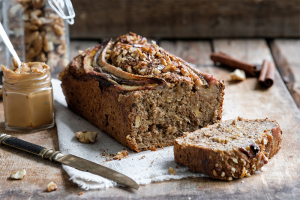
There are a few other alternative sweeteners that may taste like sugar. But allulose sets itself apart in that it bakes and browns like sugar. This is important because baked goods made with other alternative sweeteners are known for not being able to achieve the same taste and texture. These goods also suffer from dryness and going stale quickly.
As a result, you can still get golden browning on your baked goods, chewy dessert bars, and sauces without graininess. Find out more about cooking with allulose here.
Tastes like Regular Sugar
Artificial sweeteners have a reputation for weird aftertastes and products that just taste off somehow. Allulose, in contrast, reportedly tastes pretty much like regular sugar and in a study of 16 sweeteners was rated as one of sugar’s most viable replacements. It’s not quite 1:1 though, allulose is only about 70% as sweet as regular sugar.
Low in Calories

Allulose mostly doesn’t get metabolized in the body, but it’s not exactly zero-calorie or non-nutritive. It provides approximately 10 percent of the calories of sugar at 0.2–0.4 calories per gram.
Blood-Glucose Levels
Another benefit of the fact that allulose doesn’t metabolize is that it won’t spike insulin levels. Unexpectedly, it’s actually been found to improve blood glucose levels in those who don’t have diabetes.
Because of this and its cooking properties, it might be a suitable sweetener for keto-friendly desserts and other foods. Keep in mind that flour and other ingredients have their own carbs.
Allulose Doesn’t Cause Tooth Decay
Bacteria and plaque metabolize sugar and release acids that damage tooth enamel and cause tooth decay. Allulose doesn’t get metabolized this way and is better for your teeth as a result.
The Downsides of Allulose
Cost
Allulose is expensive to produce and there isn’t much of it that occurs naturally so it’s not as affordable or cost-effective as many other alternative sweeteners.
Digestion
Most people won’t experience problems within the recommended consumption guidelines (0.9 grams per kilogram of body weight) but some individuals with specific sensitivities and those who consume more than the recommended amount will experience digestive upset.
Other Frequently Asked Questions about Allulose
Is Allulose the Same as Stevia?
Allulose and stevia are both low-calorie sweeteners, but they’re not the same. Allulose is a sugar that occurs naturally in some foods, including figs and wheat. Stevia sweetener is an extract from the plant Stevia rebaudiana, the sweetness of which comes from stevioside and rebaudioside A and C.
Is Allulose FDA-Approved?
Allulose is generally recognized as safe by the FDA and has been approved for use as a sugar substitute in baked goods, chewing gum, hard candy, frozen dairy desserts, yogurt, cereals, and carbonated and non-carbonated diet drinks.
Who Shouldn’t Eat Allulose?
A very small group of people are allergic to alternative sweeteners. These individuals should avoid allulose.
Bottom Line
Allulose is an FDA-approved sweetener that occurs naturally in small amounts. It has many promising health benefits without many of the drawbacks that other alternative sweeteners have. As a result, it could be an aid in weight loss and blood sugar management.*
However, it’s not right for everyone. Those who have allergy problems with alternative sweeteners should still avoid allulose.
This article is provided for informational purposes only and is not intended to be used as medical advice. If you have immediate concerns about your health, please seek the help of your physician.
*These statements have not been evaluated by the Food and Drug Administration. Products are not intended to diagnose, treat, cure or prevent disease.

